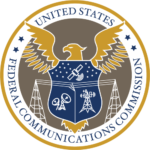2021 was an interesting year for many executives and leaders in the call center industry space. In fact, as I look back, one key industry-altering event in the call center/BPO space was the STIR/SHAKEN implementation.
The problem is that while there were deadlines for the STIR/SHAKEN implementation, some carriers were more aggressive at meeting the deadlines than others. And in fact, some carriers are still lagging behind with the full STIR/SHAKEN implementation.
Why is it so important to get to 100% STIR/SHAKEN implementation?
Full STIR/SHAKEN implementation is very important because legitimate callers need to get their calls delivered to and answered by the called party. Right now, most carriers are blocking calls if the all is not signed with a SHAKEN token by the originating carrier. American businesses and non-profits have a legitimate need to contact prospects, customers and other stakeholders to ensure timely relevant communication but they may be unaware that their calls are being blocked.
Use Case Example: ABC Insurance is hurt by the STIR/SHAKEN implementation
Let’s say that you (a consumer) are looking for a better rate on your car insurance. You fill out a form online asking for a price quote. You give consent for up to 5 companies to contact you with a price quote. Then ABC Insurance (one of the five companies) attempts to call you but the call does not get delivered to you because the telecom carrier used by ABC Insurance does not have full STIR/SHAKEN Implementation and they are not signing ABC Insurance’s outbound calls.
The called party’s carrier (your carrier) is blocking the calls from ABC Insurance because the call is not signed. Ugh! And believe it or not, calls that are blocked by the called party’s carrier are not required to utilize a standard signal to notify the calling party that the call was blocked. Some carriers send back a ring no-answer signal, some a busy signal and others send back something else. This lack of consistency makes it very difficult for a dialer administrator to identify if their calls are being blocked by the called party’s carrier.
What is the bottom-line impact of utilizing a carrier without STIR/SHAKEN implemented?
The bottom-line impact is that ABC Insurance has wasted its money on its pay per lead campaign. Effectively, it is as if ABC Insurance never called its leads after paying for them. And you, the consumer, is not getting the benefit of hearing from ABC Insurance about their offering and the price. I’m sure you’ve had that happen before. You’re online searching for something, you fill out a form, but you’re never contacted. It is highly likely that the business is not using SHAKEN compliant telecom services with full STIR/SHAKEN Implementation.
Additional tips for how businesses can avoid having legitimate calls blocked
Note: The following information was sourced from fcc.gov and we think it is a great resource.
Phone companies, or their partner service providers, look for suspicious calling patterns in their ongoing efforts to proactively block unwanted and illegal calls. False-positive blocking may occur if a legitimate business or other entity places calls using a pattern similar to those associated with unwanted – and often illegal – robocalls.
According to the Federal Communications Commission (FCC), here are some best practices to avoid being blocked:
- Always use a valid outgoing number.
- Never display an invalid number in caller ID.
- Never substitute a phone number in caller ID to which you do not subscribe.
- Do not use an outgoing number that is on the Do Not Originate list.
- Limit the number of calls placed per minute, particularly outside of normal business hours.
- Limit the number of times you call numbers back within a short time frame.
You should also periodically check with phone companies and third-party analytics companies about consumer complaints for the numbers you use to place calls. Good news! Quality Voice & Data does that for our clients with our Monitoring & Remediation service.
Angela Garfinkel currently serves as a Director for Quality Voice & Data. With 30+ years of call center and business process outsourcing experience, Angela provides the QVD team with key insights to support product development, marketing and sales. In addition, Angela teams up with Dean Garfinkel for strategic planning and leadership development. In addition to founding Quality Contact Solutions in 2007, Angela also co-authored an online course for The Direct Marketing Association (DMA) called Teleservices. Angela’s formal educational background includes a Masters in Business Administration and an undergraduate degree in Telecommunications Management from the University of Nebraska.
Angela Garfinkel, Director at Quality Voice and Data, brings over 30 years of experience in call center and business process outsourcing. Well known in the telemarketing and telecommunications industry, she co-authored a course for The Direct Marketing Association and actively participates in professional groups like PACE. Her educational background includes an MBA and an undergraduate degree in Telecommunications Management from the University of Nebraska.